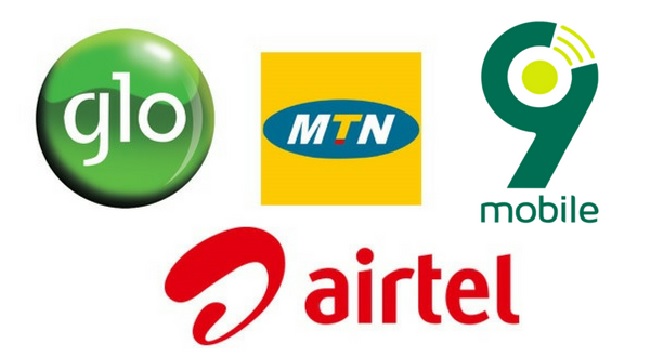Nigerian telecommunication giants, like MTN and Globacom, are urging the Nigerian Communications Commission (NCC) to approve a hike in service tariffs. This stems from financial losses suffered in 2023 due to volatile foreign exchange rates and surging energy costs.
Crippling Cost Increases Threaten Industry
Telecom companies point out that they haven’t raised prices in over a decade, despite facing a wave of rising costs. The twin challenges of foreign exchange scarcity and network maintenance expenses have severely impacted their bottom lines. MTN’s losses ballooned by a staggering 804% in 2023, and Airtel Africa also witnessed a precipitous drop in profits. The cost of purchasing equipment, often denominated in US dollars, has risen sharply due to the depreciation of the Nigerian naira. Additionally, the cost of diesel, a critical fuel source for powering base stations, has skyrocketed. These combined factors have created a perfect storm for the telecom industry, threatening the financial viability of these service providers.
Looming Specter of Network Outages
Industry leaders warn that the current tariff structure is untenable and threatens network shutdowns if a price increase isn’t implemented. This would leave millions of Nigerians without access to critical communication services. They argue that the existing pricing scheme simply can’t cover the ballooning operational costs. Network outages would have a devastating impact on individuals and businesses alike, disrupting communication channels, hindering economic activity, and potentially jeopardizing public safety.
Subscribers and Economic Experts Voice Support
The National Association of Telecommunications Subscribers (NATCOMS) has expressed support for a measured price increase to help operators maintain and improve services. Consumers understand the need for sustainable telecom services and are willing to accept a modest price adjustment to ensure network stability and quality service delivery. Economists also echo this sentiment, acknowledging the general rise in business operating costs in Nigeria. They urge the government to address the broader economic issues impacting all sectors of the economy, including the persistently high inflation rate and the devaluation of the naira. A holistic approach is necessary to create a more favourable business environment for telecom companies.
NCC Weighs the Options
The NCC has yet to decide on the tariff hike request. Regulatory bodies are grappling with the potential impact on consumers already burdened by a high cost of living. Striking a balance between operator sustainability and affordability remains a significant challenge. The NCC will likely consider conducting a comprehensive study to assess the true cost of providing telecom services in Nigeria. This would take into account factors such as infrastructure maintenance, network expansion, equipment costs, and energy consumption. Additionally, the NCC will need to weigh the potential impact of a price hike on different segments of the population, ensuring that essential communication services remain accessible for low-income earners.
Potential Ramifications of a Price Hike
A price increase could ensure network stability and continued investment in infrastructure, but it could also place a strain on subscribers’ wallets. The NCC will need to carefully consider these factors before reaching a verdict. A measured price hike, coupled with government initiatives to address the underlying economic challenges, could be the most favourable outcome. This would allow telecom operators to remain afloat, invest in network upgrades, and deliver quality services while minimizing the financial burden on subscribers. However, an excessively high price increase could lead to subscriber churn, disproportionately impacting low-income users, and hindering the overall growth of the digital economy.
The Path to a Sustainable Solution
Finding a long-term solution requires collaborative efforts from the government, NCC, telcos, and subscribers. The government can play a role in addressing underlying economic issues, such as inflation and currency fluctuations, by implementing sound fiscal policies. The NCC can facilitate a transparent and inclusive dialogue between industry stakeholders and consumers to reach a consensus on a fair and sustainable pricing model. Telecom companies should focus on optimizing operational efficiency and exploring innovative solutions to reduce costs. Finally, subscribers should be prepared for a potential price adjustment but urge for transparency and accountability from service providers. Open communication with subscribers will be paramount to ensure understanding and minimize service disruptions. By working together, all stakeholders can create a sustainable future for the Nigerian telecom industry, ensuring continued growth and improved service delivery for all.










